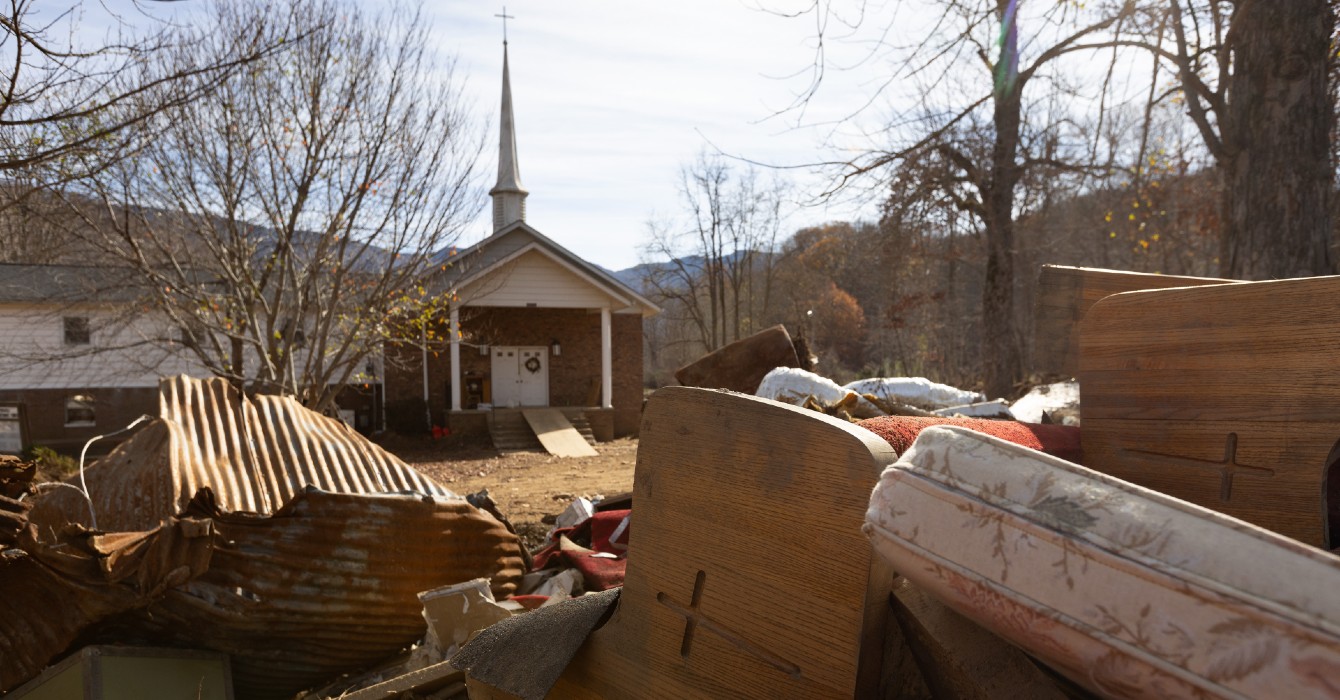I just returned from a marathon trip to seven cities, meeting with leaders across industries and sectors — from grassroots advocates to executive directors. While contexts varied, a common thread emerged: exhaustion, burnout and quiet gloom about the future.
In every room, I heard the same refrain:
“We’re stretched too thin.”
“The uncertainty feels endless.”
“It’s hard to plan, let alone dream.”
Most troubling: Many leaders no longer feel they have permission — or capacity —to play, to imagine. They feel stuck in survival mode.
It’s understandable. We are living in a time of polycrisis — a tangle of social, cultural, spiritual, ecological and economic pressures. It all feels too fast to track and too big to solve. These come wrapped in polarities of urgency and inertia, growth and grief. Leaders are asked to hold it all.
At New Generation3 (NG3), we haven’t been immune. Earlier this year, I noticed similar signs in our team — waning creativity, fatigue, fear for our well-being, the impact of lost funding and targeted attacks on our community. We were so busy putting out fires that we drifted from one of our core values: we give from overflow, not from scarcity.
Our team is deeply aware that we are called to sacred work that affects lives. We can’t afford to do it without the right mindset, spiritual grounding, team unity and holistic well-being. So we did what we often coach others to do — we paused. We came together to think through how to get ourselves unstuck, reconnect with one another, expand our perspectives and remember the future we are shaping.
We pivoted — drawing from our grounding in research, theology, culture and leadership frameworks. In that process, the Spirit reminded us in the face of despair and injustice, leaders must play and celebrate.
Most of us at NG3 have roots in Latin American and Indigenous cultures. Shaped by histories of colonization, we’ve become experts at joyful, playful resistance. In our communities, it’s common to poke fun at misfortune, throw parties amid chaos, and hold feasts from nearly empty pantries. This isn’t idiosyncratic — it’s communal theology and ancestral wisdom in motion. Joy doesn’t ignore pain; it metabolizes it. It reclaims time, space and dignity through celebration.
Liberation and decolonial theologies remind us that joy and play are not optional — they are defiant acts of dignity. As Brazilian theologian Rubem Alves wrote, “What is joy if not resistance to death?” These practices don’t distract from leadership; they deepen it, keeping us human, humble and anchored in hope. As Christians, we’re called into that rhythm: a people not only of fasts, but of feasts.
When we create, laugh, dance and eat together — especially in times of crisis —we’re not being frivolous. We are proclaiming that the Spirit is still moving, still liberating, still raising up dry bones (Ezekiel 37:1-14).
Scripture invites us into this rhythm. We are people of celebration — called to remember, rejoice and hope. From feasts to dancing before the Lord, the Bible is full of joy amid suffering. Psalm 30 promises that “Weeping may linger for the night, but joy comes with the morning.” Meanwhile Isaiah envisions a feast of rich food, of well-aged wine, where God wipes away every tear (Isaiah 25:6-8).
Scripture also invites us into fantasy. Revelation is the ultimate call to a sacred imagination — not for fantasy’s sake, but as eschatological vision: the Spirit-given capacity to foresee a future beyond what is. Amid persecution and empire, John gives us a fantastical vision of a new heaven and a new earth, where death is no more and the river of life flows from the throne of God (Revelation 21-22).
Fantasy and play help us remember what’s possible. As J.R.R. Tolkien wrote, “Fantasy remains a human right … because we are made: and not only made, but made in the image and likeness of a Maker.”
Even Jesus didn’t abandon joy amid suffering. He embodied joy — feasting with outsiders, blessing children, telling playful parables, multiplying bread and wine at weddings. And when Paul and Silas were unjustly imprisoned — stripped, beaten, and locked in the innermost cell — they sang. Worship in that dark wasn’t weakness. It was power. It shook open the prison doors (Acts 16:16-40).
At NG3, we leaned into these truths and began scheduling what we now call “play dates.” Some are quick WhatsApp threads filled with memes, funny videos and encouraging voice notes. Others are Zoom calls where we pause the production agenda for laughter, spontaneity and wild ideas — even those that don’t fit the current budget or plan. We protect space for Sabbath, shared meals and in-person joy — fueling one another when we’re too weary to play.
This fall, as we entered deep strategic planning for 2026, we embraced a new reframing. Instead of asking, “Have we worked hard enough to earn play?” we now ask, “Have we played long enough to do our best work?”
Our strategic meetings now begin with play — a museum walk, a park experience or a curated chocolate tasting. These small acts restore energy, expand our leadership imagination and help us reclaim our Latino leadership models — deeply relational and joy-centered. Play, creativity and celebration are renewable resources for leadership rather than occasional perks.
In high-pressure seasons, these practices often hold more weight than we assume. They’re not distractions; they spark creativity, deepen team trust and reconnect us to what makes us human. As Harvey Cox warned, “The suppression of festivity is one of the most dangerous trends in contemporary culture.” When we lose our capacity for joy, we may carry the work but lose our ability to flow with change.
This lighthearted environment fuels us — neurologically, spiritually and relationally. For a think tank like NG3, where strategy and Spirit-led discernment go hand in hand, imaginative play is a leadership discipline, not a luxury. Research shows that creative play activates the brain’s default mode network, enhancing resilience, innovation and emotional regulation. In short: We lead better when we play.
These practices are at the heart of mission — tangible expressions of the resilient, creative and close-knit leadership we aim to embody. They are also countercultural. Many leadership spaces treat fantasy, play and celebration as peripheral. It’s easy to fall into patterns of emotional compartmentalization, polished appearances and measuring worth by output.
But when other voices demand urgency, hyperproductivity and restraint, God invites us to something more powerful: the courage to imagine what could be through creativity and sacred imagination. In doing so, we open pathways for transformation in complex times.
The call to leadership today is to hold tension between urgency and rest, grief and joy, reality and imagination. In that liminal space, fantasy, play and celebration are survival strategies for sustainable faithful leadership.
We don’t play in spite of pain. We play because of it. We celebrate and play not because the work is done but because we need joy to keep going. In complex times, let’s not retreat into anxiety and despair. Let us resist with the beauty and lightness of play.
Joy doesn’t ignore pain; it metabolizes it. It reclaims time, space and dignity through celebration.




























